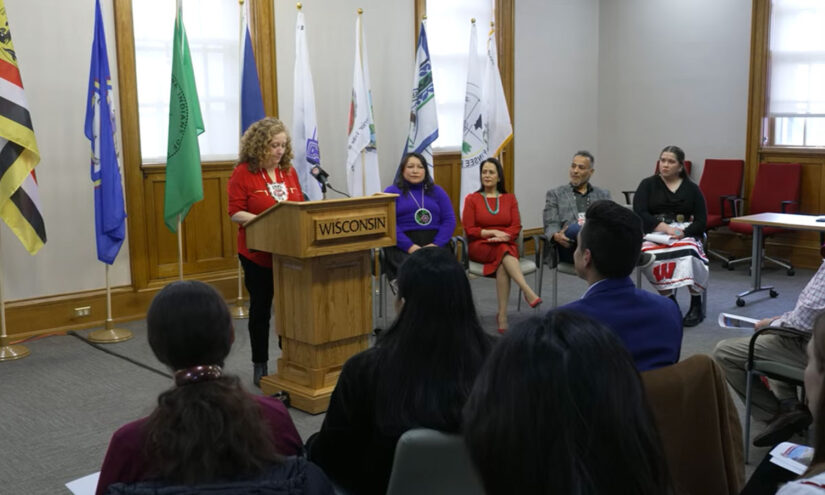During this summer, a team of students from MIT embarked on a journey to the sou …
UW-Madison Launches Initiative to Fully Fund Native American Student Tuition
Carlos Changemaker

The University of Wisconsin-Madison unveiled a new initiative this week that will cover all expenses for students who belong to one of the 11 federally recognized Native American tribes in Wisconsin.
Under the program, any enrolled member of these tribes will be eligible, regardless of their financial need. The announcement comes shortly after the UW System Board of Regents reached an agreement with the state Legislature to halt the hiring process for diversity-related positions in exchange for pay raises and funds for various university projects.
UW-Madison Chancellor Jennifer Mnookin, who supported the agreement with the Legislature, emphasized that the program for Native American students had been under discussion for over a year and is not directly connected to recent events. However, she asserted that the university remains committed to fostering diversity.
Speaking at a press conference to introduce the program, Mnookin stated, “Diversity is a fundamental value for us here at UW Madison, and this initiative is just another example of our dedication to that principle.”
The undergraduate program will cover all expenses associated with obtaining a degree at UW-Madison, including tuition, fees, housing, meals, books, and other educational costs. Additionally, a separate pilot program lasting five years will cover in-state tuition and fees for medical and law school students. The university reports that the annual cost for in-state undergraduates is $28,916. Law school students face annual tuition and fees of $35,197, while medical students have to pay $42,198 per year.
Students do not need to apply for funding through this program. University officials clarified that students only need to provide proof of tribal membership when submitting their annual financial aid forms.
According to officials, there are currently around 650 students at UW-Madison who identify as Native American. However, this identification does not require proof of tribal affiliation and includes students from tribes outside of Wisconsin.
Mnookin explained that the program will be financed through private donations and “other institutional resources.” Although she did not disclose the specific sources of these resources, she confirmed that none of the money will come from state funding.
The chancellor also emphasized that establishing the program “felt like the right thing to do” in order to strengthen the partnership between the university and Wisconsin’s 11 tribes, especially considering that the university is located on traditional Ho-Chunk Nation land.
Shannon Holsey, president of the Stockbridge-Munsee band of Mohican Indians, expressed her support, stating, “The tribal nations of Wisconsin have always believed in the power of education as an equalizer, dating back to the 1700s. If it weren’t for the displacement of indigenous peoples, American colleges and universities would not exist. Institutions must challenge themselves to move beyond symbolic gestures and make transformative changes. This program is a significant step in the partnership between Wisconsin’s Native tribes and the University of Wisconsin-Madison. While other states may have programs with similar goals, to our knowledge, none go as far as this one in terms of financially assisting Native students in pursuing higher education.”
Officials acknowledged that they do not yet know how popular the program will be. They pointed out that the application deadline for incoming students for the fall of 2024, when the programs will be implemented, is February 1st. Mnookin acknowledged that it would be unrealistic to expect a significant increase in Native American applicants within the six-week timeframe between the program’s announcement and the application deadline. However, she expressed hope that the number of tribal members at UW-Madison will continue to grow as the program becomes more established.


